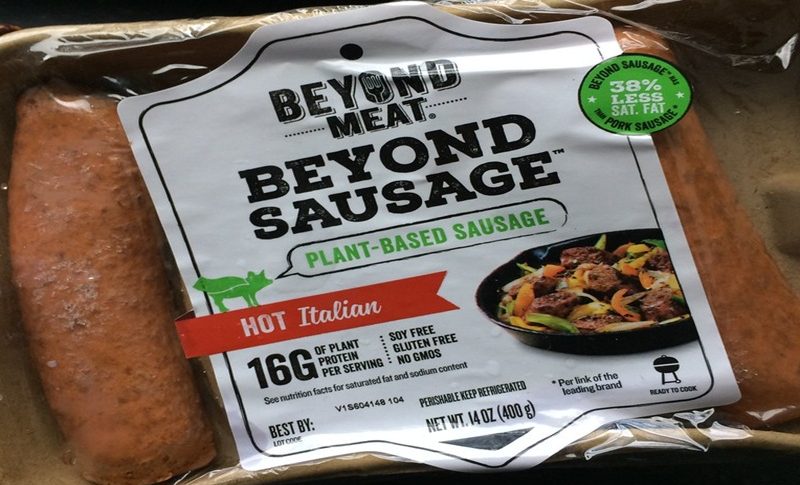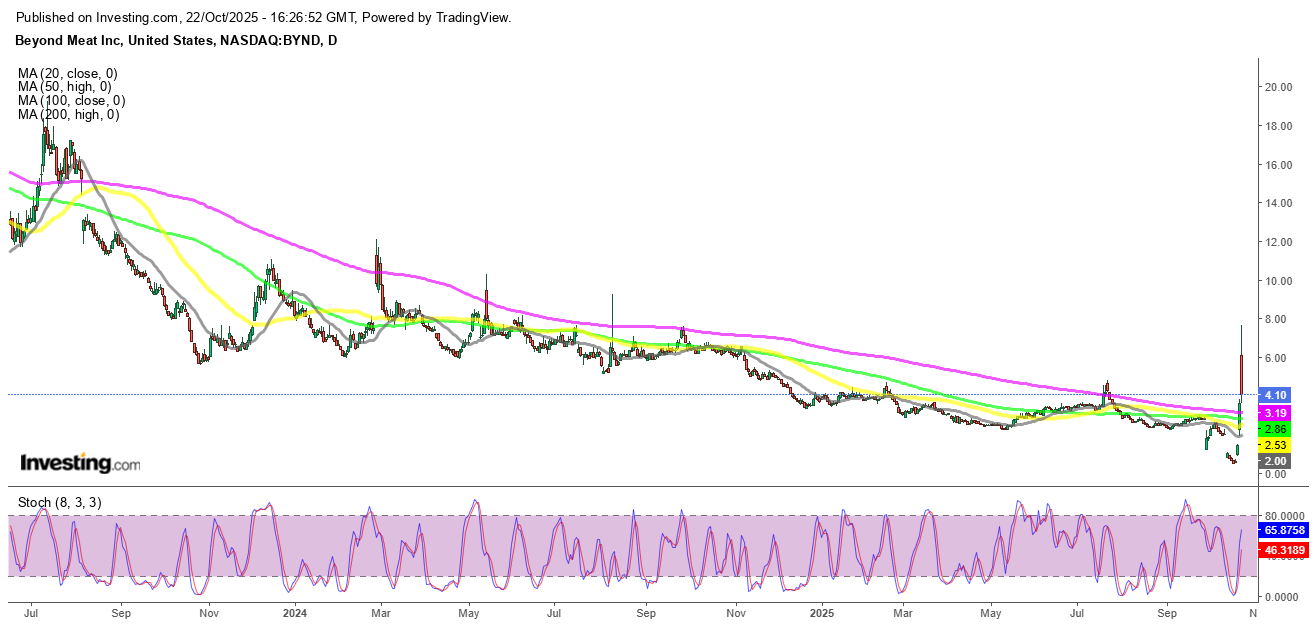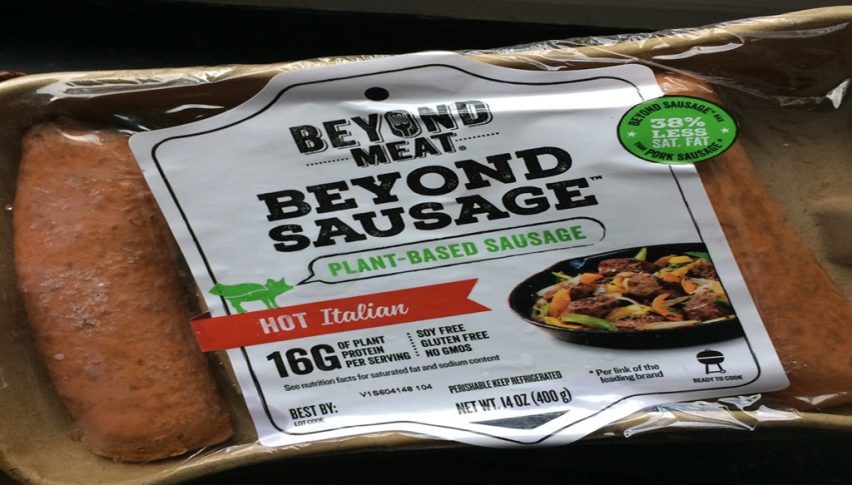BYND Stock Dives 60% After Spike: Time to Sell the Dead Cat Bounce in Beyond Meat?
After narrowly averting bankruptcy through a major debt exchange, Beyond Meat’s short-lived comeback soon disintegrated – demonstrating how

Quick overview
- Beyond Meat's stock has plummeted from a peak of over $240 in 2019 to around $3.58, reflecting a significant loss of investor confidence.
- The company's recent debt restructuring provided temporary relief but failed to address ongoing issues of weak demand and high production costs.
- Consumer interest in plant-based substitutes has declined, with competitors offering better products at lower prices, further eroding Beyond Meat's market position.
- Analysts warn that without a clear turnaround strategy, Beyond Meat risks falling below $1 again, potentially leading to delisting.
After narrowly averting bankruptcy through a major debt exchange, Beyond Meat’s short-lived comeback soon disintegrated – demonstrating how little faith exists in the once-hyped plant-based company.
From Market Star to Market Casualty
Once hailed as the future of food, Beyond Meat (NASDAQ: BYND) has now become a stark reminder of how fast hype can evaporate. The stock — which traded above $240 at its 2019 peak — briefly soared to $7.70 on Wednesday before collapsing to $3.58, erasing 55% of its gains within hours.
BYND Chart Daily – The Trend Remains Convincingly Bearish
The dramatic reversal underscores a grim reality: investors are no longer buying the “new meat” story. With BYND now hovering near $1, last week’s meme-fueled surge looks more like a short-selling setup than a true turnaround.
Debt Deal Buys Time, Not Confidence
The recent surge was triggered not by growing demand or innovation, but by a desperate financial restructuring. Beyond Meat completed a $1.15 billion debt swap, converting its zero-coupon notes due 2027 into $202.5 million in new 7% notes due 2030 and 326 million new shares.
This maneuver wiped out 97% of its old debt, briefly sparking optimism that the company had dodged bankruptcy. But traders quickly sold into the rally as it became clear that nothing about the underlying business had changed — demand remains weak, costs are high, and profitability is nowhere in sight.
The pattern is all too familiar: every spike over the past two years has been followed by a steep collapse, as fundamentals continue to deteriorate.
Public Appetite Evaporates
Beyond Meat’s core problem isn’t balance sheet management — it’s the collapse of consumer interest in plant-based substitutes.
Once seen as the leader of a sustainable food revolution, the brand has lost its appeal amid complaints about taste, texture, and price. Once-loyal customers have drifted away, while rivals like Tyson and Impossible Foods crowd the market with cheaper, better-performing products.
Revenue tells the story:
- $464 million in 2021
- $418 million in 2022
- $343 million in 2023
- $318 million in 2024, with further declines expected in 2025.
Even marquee partnerships with McDonald’s and Yum! Brands failed to generate sustainable sales — and many of those collaborations have quietly faded away.
Profitability Still a Distant Dream
Despite the temporary debt relief, Beyond Meat’s finances remain dire. The company continues to burn cash at a rapid pace while facing mounting dilution from its note conversion.
Margins remain under pressure due to high production costs, weak pricing power, and declining volumes. Analysts warn that the firm’s cost-cutting measures can’t offset its shrinking demand base or negative cash flow.
The company may have bought time, but not stability — and any future capital raises could come at the expense of shareholders.
Meme Stock Moment or Last Gasp?
Beyond Meat’s violent price swings have made it a playground for speculators, not long-term investors. Wednesday’s whiplash move — up 500%, then down 55% — highlights how detached the stock has become from business reality.
Without clear signs of a turnaround, analysts warn the company could soon revisit sub-$1 levels, putting it at risk of delisting if it fails to regain sustained investor confidence.
Conclusion: Borrowed Time for a Broken Brand
Beyond Meat’s latest rebound was a financial illusion, not a recovery story. The debt swap postponed collapse but did little to fix the core issue — a fading product category and dwindling consumer trust.
Unless the company can reinvent itself beyond its struggling plant-based identity, Beyond Meat may soon find itself back where it started — trading for pennies and running out of options.
- Check out our free forex signals
- Follow the top economic events on FX Leaders economic calendar
- Trade better, discover more Forex Trading Strategies
- Open a FREE Trading Account
- Read our latest reviews on: Avatrade, Exness, HFM and XM

